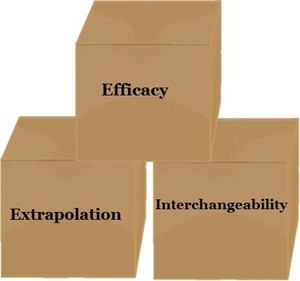The regulatory framework for biosimilars in Canada explains how their substitutability and/or interchangeability are governed in the country. Biosimilars, which are known as subsequent entry biologics (SEBs) in Canada, are regulated in line with guidance from the World Health Organization.
Most regulatory agencies worldwide agree that biosimilars cannot be identical copies of the originator drugs on which they are modelled. This is in contrast to the situation with pharmaceutical drugs, for which exact copies – generics – can be made.
A generic drug is compared with the first product of a class, but SEBs may be compared to one of several originator products in the class. The difference between an SEB and a new drug is that an SEB is developed by comparison with a reference product of similar structure and mechanism of action previously authorized and marketed in Canada, write Klein and co-authors in the Generics and Biosimilars Initiative Journal [1]. SEBs cannot be used as reference products for new SEBs.
Regulations governing biosimilars around the world vary from approximations of the generics pathway to combinations of the generics pathway and biological pathways. In Canada, regulators adopt a practical approach that takes into consideration the unique properties of biologicals. Importantly, a flexible approach is taken based on the ever-changing science in this area.
An SEB may be used instead of the reference biological, but exchanging a reference product while a patient is already on a course of treatment raises serious concerns. An SEB is not an identical copy of its originator product, so substitution and interchangeability require careful thought.
In the European Union, decisions on substitution and interchangeability of biosimilars and originators are not made by the European Medicines Agency (EMA), but by each individual nation. Automatic substitution is prohibited by 15 Member States. The situation is similar in Canada, where interchangeability is a provincial or clinical decision and is not decided on by Health Canada. In the US, the Food and Drug Administration (FDA) can designate a biosimilar as interchangeable with its originator, although individual states govern drug substitution laws.
Automatic substitution of biosimilars, or SEBs, is recommended in very few countries worldwide. A similarly cautious approach is being taken in Canada, where particular caution is taken in the area of extrapolation of indications and uses.
The question of extrapolation of indications, where a biosimilar is approved for each of the same indications as a brand-name originator, even if clinical testing has not been carried out for each indication, is approached with great caution in Canada. The indication of SEBs in Canada must be the same as those of the reference product, whereas EMA has considered the extrapolation of uses to all those approved for a class of products.
Among the principles governing the extrapolation of indications for SEBs in Canada, extrapolation is not permitted if minor differences between two active ingredients might have an impact on mechanism(s) of action. Similarly, differences in clinical experience compared with the reference drug preclude extrapolation.
Editor’s comment
Readers interested in contributing a research or perspective paper to GaBI Journal – an independent, peer reviewed academic journal platform – please send us your submission here.
Related articles
Subsequent entry biologics approved in Canada
Canada clarifies regulatory pathway for subsequent entry low molecular weight heparins
Reference
1. Klein AV, et al. Subsequent entry biologics (biosimilars) in Canada: approaches to interchangeability and the extrapolation of indications and uses. Generics and Biosimilars Initiative Journal (GaBI Journal). 2014;3(3):150-4. doi:10.5639/gabij.2014.0303.033
Permission granted to reproduce for personal and non-commercial use only. All other reproduction, copy or reprinting of all or part of any ‘Content’ found on this website is strictly prohibited without the prior consent of the publisher. Contact the publisher to obtain permission before redistributing.
Copyright – Unless otherwise stated all contents of this website are © 2014 Pro Pharma Communications International. All Rights Reserved.








 0
0











Post your comment